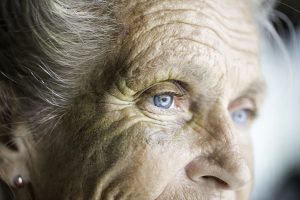
Senior bruising is a common occurrence for most older adults. Find out how to prevent and treat bruises.
Of all the changes that happen as a person ages, senior bruising is one that can be alarming for family members to observe in their older loved ones. Is it essential to talk to the senior’s doctor whenever there’s a health concern, but it is also important to understand that senior bruising is quite common. Bruising in older adults typically results from the thinning of the skin and a reduction of fat that is normal with aging. Even a minor bump to older skin can cause much more prominent bruising compared to younger skin.
Advanced Home Health Care offers the following tips to help reduce the risks for bruising, and to help heal bruises when they do occur:
Senior Bruising Prevention:
- Evaluate the safety of the senior’s home and property, making sure there are wide walking paths clear of objects the senior might trip over or bump into. Advanced Home Health Care can help assess the senior’s home for safety hazards as well.
- Encourage your loved one to wear long sleeves and pants when doing activities that could result in an injury to the skin, such as gardening or housework.
- If the senior is a smoker, offer support to help them quit. Smoking decreases collagen production, which can lead to easier senior bruising.
- Ensure that the senior’s diet includes lots of vitamin C, which plays an important role in the collagen production.
- Determine whether the senior takes any of the medications listed below, as they can increase the risk of bruising (NOTE: Do not stop any medication without consulting a doctor first):
- Corticosteroids
- Aspirin
- Antiplatelet medications
- Anticoagulants (coumadin, heparin)
- NSAIDs (Advil, Aleve, and ibuprofen)
Healing Senior Bruising:
- Place a cold compress over the bruise for 20 minutes to reduce the blood flow to the area. This can help decrease the size of the bruise and reduce swelling.
- If feasible, elevate the bruised area.
- Wrap the area with a compression bandage to help decrease swelling.
Make certain that the individual receives immediate medical help for any bruises that appear for no obvious reason, especially if they have started taking a brand-new medication or bleeding occurs in other areas of the body, such as the nose or gums.
Advanced Home Health Care’s senior care team is trained in skilled nursing care and can address a variety of elder care concerns, including older skin needs. We can also assist with:
- Assistance with walking to prevent falls and other injuries
- Bathing and moisturizing
- Checking the skin for bruises or other changes
- Providing foot care for people with diabetes
- Incontinence skin care
- Bed sore prevention
- And much more
Reach out to us today at 800.791.7785 for more skin care tips for seniors and to learn more about our in-home elderly care in Burlington and the surrounding areas.

